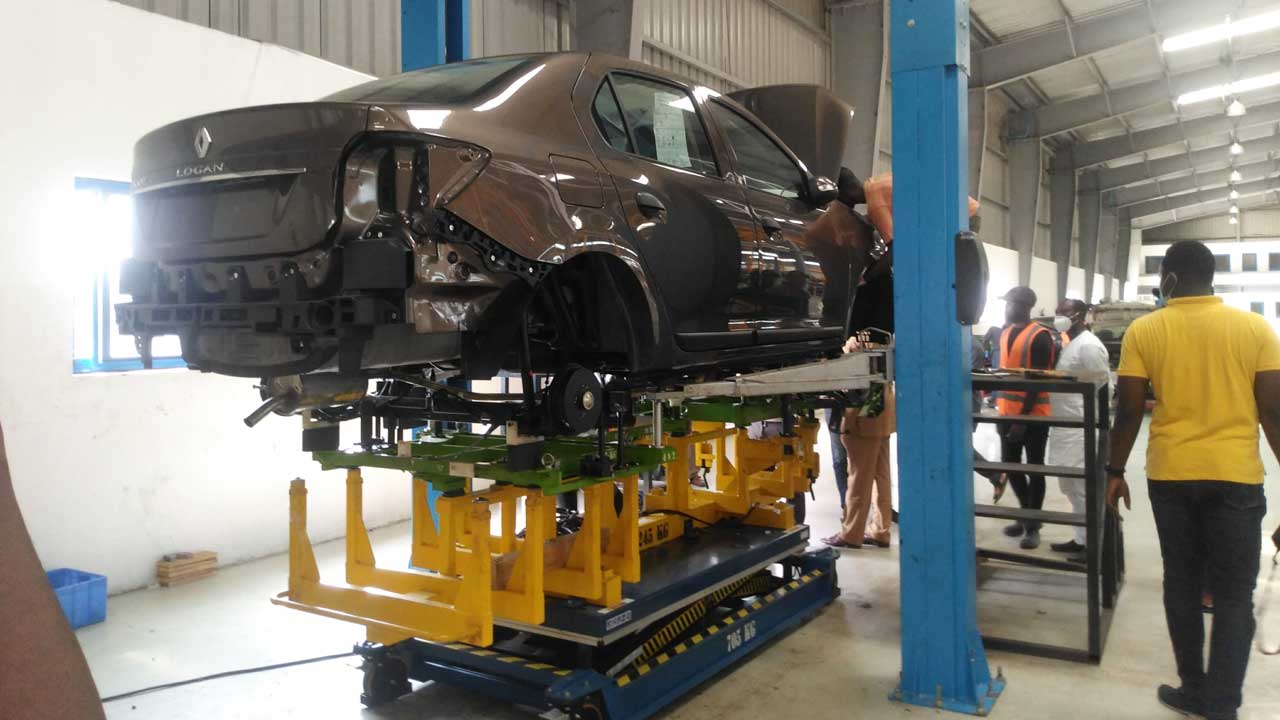In an effort to contribute to the technological advancement of the automobile industry, the Nigerian Institution of Mechanical Engineers (NIMechE) has announced its collaboration with both local and foreign automobile companies to set up electric car assembly plants within Nigeria.
Dr Funmilade Akingbagbohun, the National Chairperson of NIMechE, made this announcement during her opening speech at the association’s 2023 fellowship conferment ceremony held in Victoria Island, Lagos.
Read also: How Planet42 Rent-to-Own car scheme helps South Africans
Fostering Capacity Building and Innovation
Dr Akingbagbohun highlighted the achievements of her administration in implementing capacity building programs for members, young engineers, and tertiary institutions to enhance innovation in the engineering sector.
As part of these efforts, her office is currently constructing a world-class engineering academy on the Lagos-Ibadan Expressway.
The academy aims to equip engineers with the knowledge and skills necessary to compete globally and contribute significantly to national development.
Partnerships with Innoson Motors and Toyota
The NIMechE chairperson revealed that partnerships have already been established with Innoson Motors and Toyota to facilitate the assembly of electric cars in Nigeria.
The collaboration aims to position local engineers to seize future opportunities in the rapidly advancing field of electric vehicles.
Dr Akingbagbohun emphasizes the urgency of embracing this industry, highlighting the potential consequences of neglecting it. She stressed that if Nigeria fails to seize the opportunities presented by electric vehicles, non-engineers or mechanical engineers from other countries will fill the void.
The partnerships with Innoson Motors and Toyota, as well as the collaboration on curriculum development with Toyota Nigeria Ltd, will help ensure that local engineers are at the forefront of this technological revolution.
Prof. Oluwatoyin Ashiru, Chairman of the Board of Fellows, congratulated and advised the new fellows on embracing best practices to enhance the field of engineering. He encouraged them to provide diligent leadership to advance the nation’s development and to continuously acquire new skills to remain relevant in an ever-evolving industry.
Reducing the carbon footprint of Nigeria
The initiative to establish electric car assembly plants in Nigeria by collaborating with local and foreign automobile companies has the potential to reduce the carbon footprint of the country significantly.
Electric cars are powered by electricity, which can be generated from renewable energy sources such as solar, wind, or hydroelectric power. By assembling electric vehicles locally, Nigeria can encourage the adoption of clean energy transportation and reduce reliance on fossil fuels, which are major contributors to greenhouse gas emissions.
Electric vehicles produce zero tailpipe emissions since they don’t burn fossil fuels. This contrasts with conventional internal combustion engine vehicles that emit pollutants and greenhouse gases, contributing to air pollution and climate change. By promoting the use of electric vehicles through local assembly, Nigeria can significantly reduce emissions of carbon dioxide (CO2) and other harmful pollutants.
Electric vehicles are more energy-efficient compared to traditional gasoline-powered vehicles. They convert a higher percentage of the energy stored in their batteries to power the wheels, whereas internal combustion engines waste a significant amount of energy as heat. This increased efficiency translates to reduced energy consumption and, consequently, lower carbon emissions associated with the transportation sector.
Local assembly of electric cars can facilitate the integration of renewable energy sources into Nigeria’s energy mix. As the demand for electric vehicles increases, there will be a greater need for charging infrastructure. This infrastructure can be powered by renewable energy, which aligns with the country’s goal of transitioning to a cleaner and more sustainable energy system.
The establishment of electric car assembly plants will create job opportunities and boost the local economy. This initiative can stimulate the growth of related industries such as battery manufacturing, renewable energy infrastructure, and charging station installation. By investing in the green economy, Nigeria can achieve both environmental and economic benefits.
By embracing electric vehicles and local assembly, Nigeria can significantly reduce its carbon footprint, combat climate change, and improve air quality. The initiative not only contributes to a more sustainable future but also presents economic opportunities and technological advancement for the country. It showcases Nigeria’s commitment to environmental responsibility and positions it as a leader in the adoption of clean transportation solutions in the region.
The NIMechE’s collaboration with automobile companies to establish electric car assembly plants demonstrates a commitment to technological advancement and economic growth. Through capacity building programs and partnerships with industry leaders, the institution aims to equip Nigerian engineers with the skills and knowledge required to thrive in the emerging field of electric vehicles. The establishment of a world-class engineering academy and the sponsorship of curriculum development by Toyota Nigeria Ltd further solidify NIMechE’s dedication to equipping engineers with the expertise needed to compete on a global scale.
The collaboration with Innoson Motors and Toyota not only signifies a step towards the future of transportation in Nigeria but also showcases the importance of local talent and innovation in driving technological progress. By assembling electric cars within the country, Nigeria can reduce its dependence on imported vehicles, create job opportunities, and contribute to a greener and more sustainable future.
The guest speaker, Adekunle Adebajo, emphasized the importance of collaboration and continuous learning in the engineering field. His advice on teamwork, competence, inquisitiveness, and learning from mistakes serves as a reminder to engineers to prioritize professionalism, quality, and accountability in their work. By fostering a culture of collaboration and embracing best practices, engineers can enhance their skills, deliver superior results, and contribute to the overall development of the nation.
The collaboration between NIMechE and automobile companies to establish electric car assembly plants in Nigeria represents a significant stride towards technological advancement and economic growth. By equipping engineers with the necessary skills and knowledge, promoting collaboration, and addressing critical issues such as building collapses, NIMechE is positioning Nigeria’s engineering sector for a prosperous future. As the nation embraces electric vehicles and works towards a safer and more sustainable built environment, the contributions of NIMechE and its members will play a pivotal role in shaping the country’s engineering landscape.
